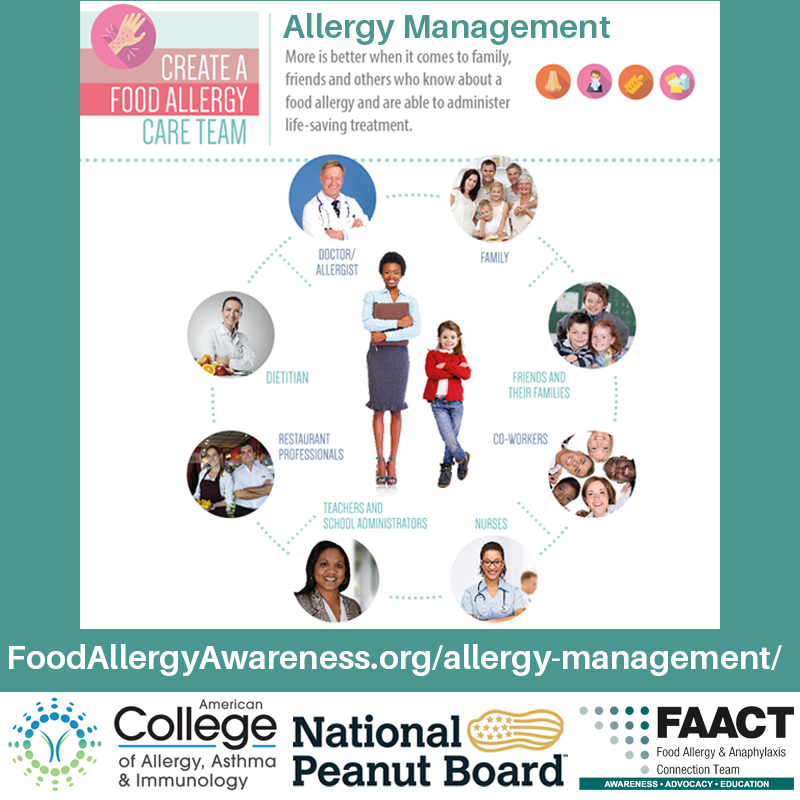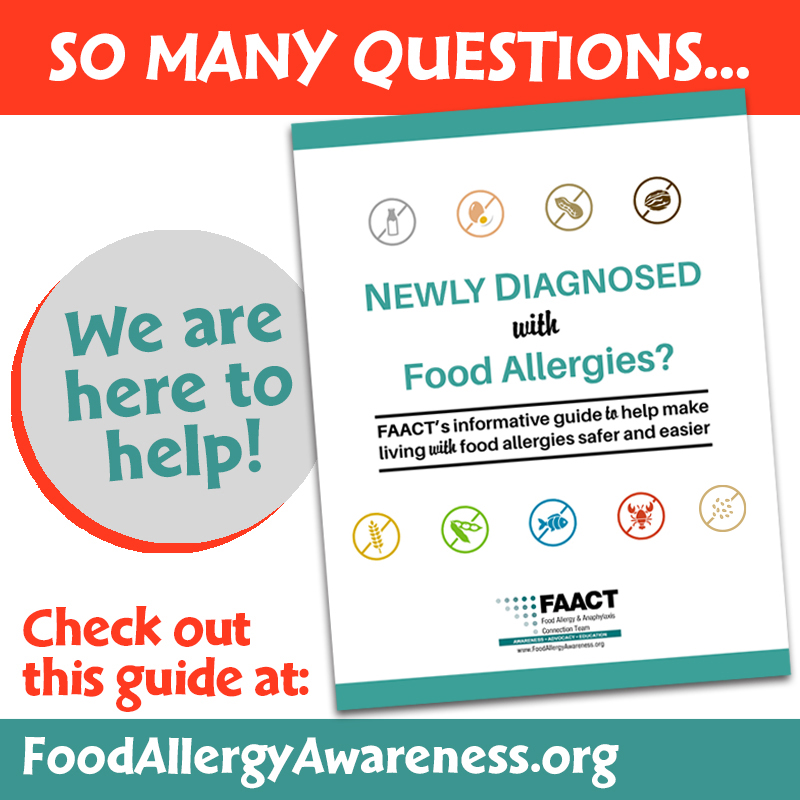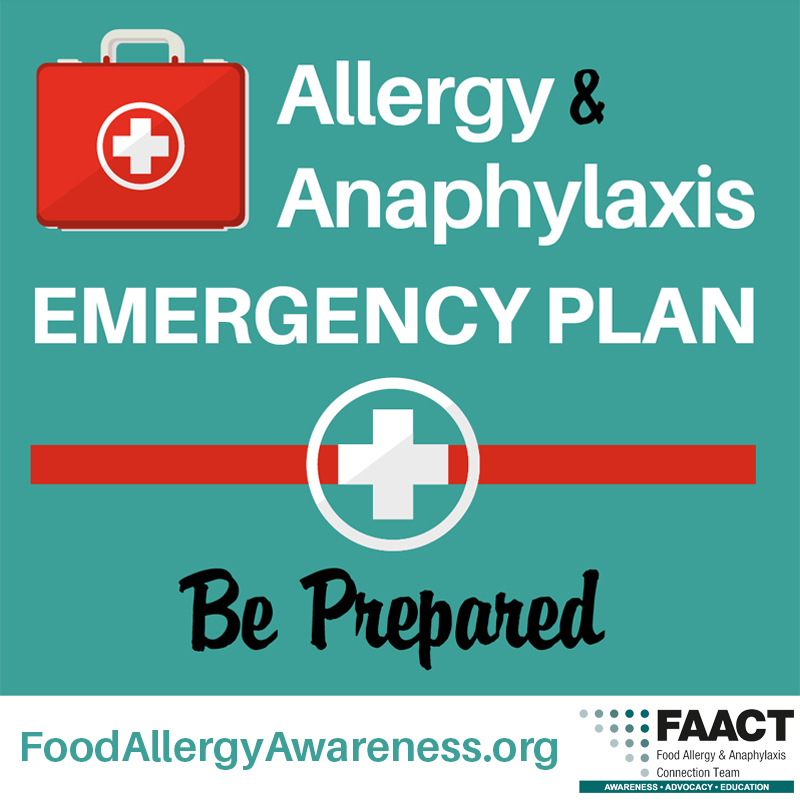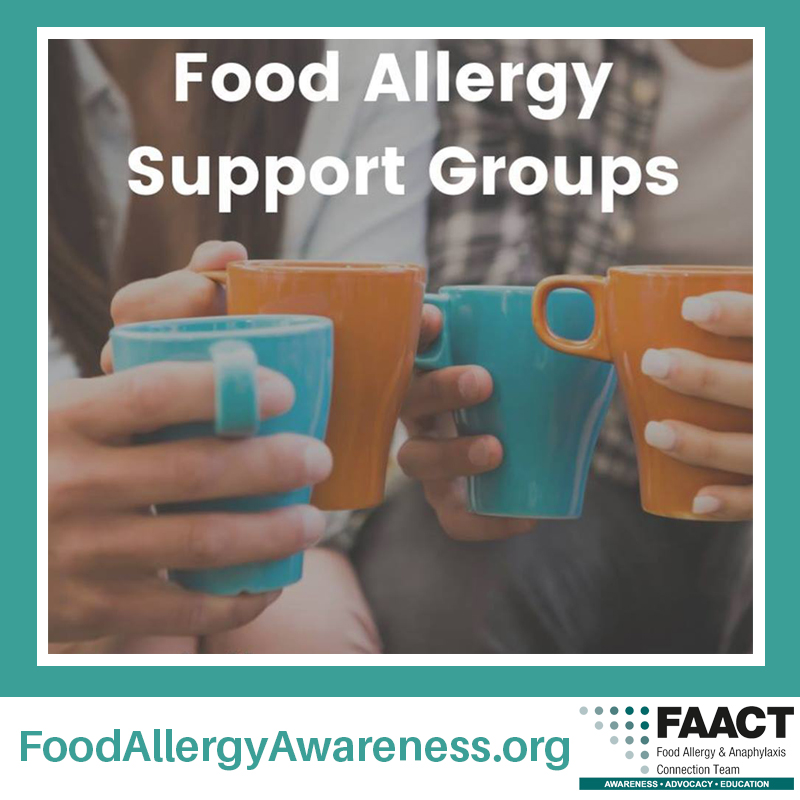Allergy Management
Effectively Managing a Food Allergy

Build a Food Allergy Care Team
Having a “care team” is important to helping a person with a food allergy avoid a reaction. Immediate and extended family members, close friends, your primary care physician and allergist, co-workers and a registered dietitian should all be aware. For children, the care team should expand to include your pediatrician, friends and their parents and school staff, such as teachers, administrators, nurses, food service professionals and administrators.

I’ve just been diagnosed with a food allergy. What should I do?
Millions of Americans have struggled with the same thoughts and questions you are having. The good news is good information and support networks are available to help you.
FAACT has a full section devoted to tips for the newly diagnosed. It includes tips about:
- Creating a safer environment
- Avoiding food allergens
- Maintaining a regular life
- Carrying epinephrine and developing an Allergy & Anaphylaxis Emergency Plan
- Proper nutrition

What is an Allergy and Anaphylaxis Emergency Plan? Why is it so important?
Food allergies can be severe. But caution, preparation, planning and communication may help prevent a reaction. You should know the warning signs of anaphylaxis and how to treat it if it occurs. FAACT has extensive resources to help.

How can I find support networks in my area?
Support groups help to connect people facing similar challenges and provide an outlet for support on many levels.
Sometimes it’s helpful to turn to others outside your immediate circle of friends and family for advice and comfort. Through a support group, you can share your experiences and advice and provide insight to others on how to cope with similar issues. Support groups can offer emotional support, further education and understanding, provide a place for people to share their concerns, and can help to reduce anxiety and confusion you might be facing (either alone or with your family).
A support group may include one or more of the following programs and activities: community outreach and education, resources, advocacy, training, special events, and much more. Support groups often bring in speakers and professionals from the local community who can provide valuable resources via lectures, webinars, newsletters, online postings, and community forums.
Food allergy and anaphylaxis support groups have dramatically increased in recent years. Often times, food allergy support group settings are confidential and offered at little or no cost to members. Online food allergy support groups have also become popular, appealing to individuals and families with busy schedules and those seeking specific information in a timely manner.
All of these benefits make support groups a valuable resource to communities across the world!
FAACT supports initiatives taking place across the nation and would like to recognize all those individuals who work tirelessly to create a safe environment in their communities and schools for food-allergic individuals. Until there is a cure, we need to continue to educate, advocate, and raise awareness.
Visit FAACT’s searchable database for a FAACT-recognized support group near you.
Learn who should be a part of your food allergy care team.
.jpg)
Meet Olivia and Thomas, two children who talk about how they manage their food allergies - with help from friends, family and others.